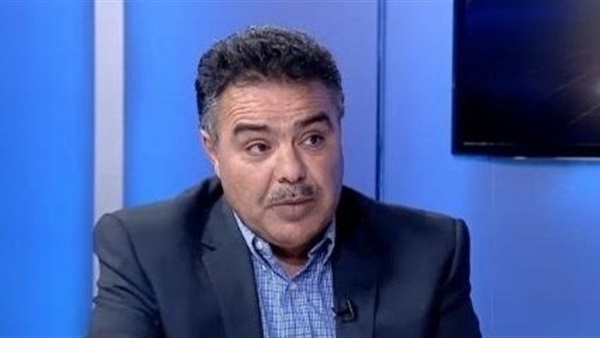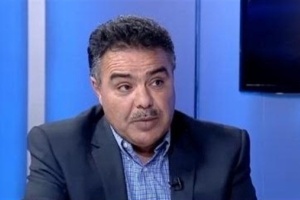By Abdullah Al-Kabir, a Libyan writer
‘Al-Saddrat’ of Military Parades

“Military parades are a type of dance similar to ballet. It is an expression of having power, in other words, it is something that says I am ugly and no one would dare laugh at me for it” (George Orwell)
The march of human civilization has known military parades since the ancient civilizations in the Mediterranean basin. In the early beginnings, the purpose of its establishment was not to display the military muscles of the state or empire. Rather, it organized spontaneously when bidding farewell to the armies heading for war or receiving them at the gates of cities upon their victorious return. The training sessions for soldiers in the Roman Empire included a daily military parade for about five hours, during which military units, with all their weapons and equipment, traveled a distance of 30 kilometers, in regular columns. Over the centuries, parades developed and had their own specific days and ceremonies, when leaders of armies, states and empires realized their benefits in instilling the values of teamwork, discipline and commitment, and also in sending messages to enemies at home and abroad.
History books mention the keenness of the Abbasid Caliph Abu Jaafar al-Mansur to hold military processions and personally supervise their preparation. He was wearing war clothes and following it from above his own platform, and the caliphs after him followed his path. However, Al-Rasheed, Al-Ma’mun and Al-Mu’tasim continued to parade their armies on horseback, and the city of Samarra was a military base in which the Caliph al-Mu’tasim Billah intended to build his palace to include a platform that overlooks an arena for military processions.
One of the traditions of the Ottoman Empire was to highlight the manifestations of strength by displaying military teams when receiving ambassadors, and when the sultan went out to visit the states. The July 14 parade in France is considered one of the oldest continuous parades until the present era, and symbolizes the unity of France after the state of division it suffered after the German war in 1880. The practice of parades continued, took root, developed and was associated in most modern countries with national holidays.
Showing the signs of strength to the enemy or the opponent is the main goal of the military parade, as the leaders realize that showing the large organized military crowds, with advanced military equipment, is enough to deter the external enemy. Within the framework of mutual deterrence between America and the Soviet Union during the Cold War, their military parades carried a short mutual message that said. I am capable of destroying you and erasing you from existence.
Avoiding war, if there is a way, is also one of the goals of the military parade. When the Muslim army advanced to conquer Mecca, the Prophet, peace be upon him, preferred to conquer it peacefully, with his prior knowledge of the existence of an extremist wing inside Mecca led by Ikrimah and Safwan bin Umayyah, preparing for armed confrontation and inciting it, so Al-Abbas, the uncle of the Prophet confined Abu Sufyan in the strait of the valley to review the army Al-Fateh, and when he saw the enormity of the army, he commented saying: “No one has the power to confront these people, the king of your nephew has become great, Aba Al-Fadl”. And he returned back to Mecca astonished to say to its masters, hesitating between surrender and confrontation that Mohammad has brought you what I will not accept for you, and this is what the Prophet, peace and blessings be upon him, wanted. The army paraded in front of the master of Mecca to realize that the choice of war would not be in the interest of the Quraysh, so he would take the side that is not inclined to fight, with giving him the privilege of prestige in front of his people, "and whoever enters the house of Abu Sufyan is safe."
In view of the threats faced by countries despite their hatred of war, the military parade as well as the maneuvers are part of the strategy of deterrence that is less costly than the war, and the industrialized countries consider it an opportunity to display and promote their latest military products or the modernization of previous weapons. Showing performs the same marketing function that seasonal exhibitions perform in other walks of life.
Military parades became common during the period of military rule in the Arab region, development rates declined, and poverty spread due to the inflated military spending at the expense of developing the productive and service sectors.
There is no longer any national goal for the military regimes except to expand the building of armies and transform the country into military barracks, and to carry out displays of power on all occasions. Despite the focus on the army, by arming it and raising its capabilities and combat efficiency, the Arab countries did not know advanced military industries. Most of the weapons were purchased from the industrialized countries, just like the ‘Al-Saddarat’ women in the women’s parties at the Tripoli wedding, they are capable women who are relatives of the bride or groom who are keen to decorate with large quantities of gold necklaces, bracelets and earrings, and sit in a row at the forefront of the ceremony, and do almost nothing except eating and drinking and the air fan on their faces, A significant part of the gold of the Al-Saddarat is either borrowed or rented, and has no value in the economic cycle, because it is used only for the purpose of showing and bragging about the less capable women, and showing off with competing women within the family.
In totalitarian military regimes such as the one in the Arab region, military parades have one goal, which is to warn the helpless people against any attempt to challenge the authority, openly oppose or even demand reform.
When engaging in external confrontations, these armies are destroyed in a few hours. The poet Amal Dunqul says in a poem (Commentary on what happened in Al-Wehdat camp)
I told you many times
The queues that pass by
In the review of Eid Al-Fitr and evacuation
The women cheer in the windows in awe
Don't make a victory
Despite the defeats, the military leaders do not stop celebrating and parading in preparation for new defeats. They do not feel defeat as long as they are steadfast in their positions. There is no defeat except that which leads to their fall from power, and there is no enemy for them except the oppressed peoples under their tyranny.
Why don't the generals of the Arab defeats win despite all this spending and focus on building armies, and maximizing military capabilities with the apparent weakness of the enemy sometimes? A basic condition for victory is missing without which victory cannot be achieved, and therefore even the semi-victories they have achieved are defeats in the final end. Egyptian novelist Bahaa Taher says, "You can rule people with fear and oppression, but the fearful cannot win a war, on the battlefield, they must be free”.
In the midst of the historical transformation stage now underway in the Arab region, the rule of the military recedes and the peoples rise to overthrow them and send them to history museums, and what remains of their presence and show of strength is the glow of the end, just as it happens to giant stars when their gases explode in a massive combustion before they are extinguished and turn into forgotten black holes at the edge of the universe, and the rest of the fools and idiots whose minds were robbed of the offers of the tyrants and who lost their consciousness despite the severity of the defeat, and who thought that they were victorious in their battles, will realize that what they saw in the parade in the square is nothing but the ceremony of the Al-Saddarat of wedding, there is no difference except in the metal displayed, the gold on the chests of the Al-Saddarat, and the steel in the hands of the Al-Saddarat of military parade.
(Al-Sodra is a traditional dress for Libyan women/ Al-Saddarat are the women who are wearing it)
Disclaimer: The views and opinions expressed in this article are those of the writer, and do not necessarily reflect those of the Libya Observer


